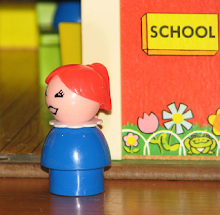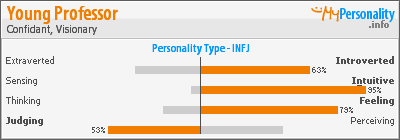Recently, I assigned my students a guided free-writing to do in class. One of the prompts was 'write a letter to yourself, ten years from now.' For me, it led to some thoughts on self-disclosure, and our relationship to it as writing teachers. Here's what I wrote during the free-write period, as the students were writing their things:
"Are these writing prompts not fun enough? Is 1.25 hours too long for these students to write? I guess we'll find out. Was my description of why we're doing this lame? Is this exercise not structured enough?
They seem to want it to have a purpose; at least, they wanted to know if we're going to use this as a basis for a future essay, and I got kind of a 'what's the point, then?' vibe from them when I said we weren't.
Maybe I'd like to design a class someday where all of the essays and compositions come out of this process of personal idea-generation. It would be a real self-making kind of class. Selfcraft.
Yeah, I am not all that into any of these prompts, right now, and that's problematic.
OTOH, I've done several of them in the past. 'Write a letter to yourself' was more fun when one was 18. It seemed like the 10 years might bring more of a miraculous transition. Well, here we go, then.
Dear Self,
The first time you wrote a letter to yourself, you were in fifth grade in the class of that one teacher you can barely remember. She made everyone write a composition at the beginning of the year, and collected it, and handed it back in at the end of the year. I wrote what was on my mind that day, which was that I'd just found out that men and women compete separately in sports--I'd been talking to my mother about tennis--and that this fact made me angry. I thought it meant that women were thought to be inferior to men. Promptly after turning it in, I decided that this composition was really, really embarrassing. I spent the whole year dreading what it had probably made the teacher think about me, and dreading receiving it back and having to be reminded of that moment, and the self who wrote it.
I guess I learned a lesson from that teacher, which is that communication, perhaps especially communication about oneself, can be embarrassing. And all the more so when that communication has the durability of the written word. I have written lots of embarrassing things over the years. When you write something, you show where you are at, and it's not perfect, it's never perfect. Writing is like sealing your own imperfection in amber and broadcasting it to the world for all eternity. It takes a lot of courage, and it is often humiliating. (It takes a lot of compassion to read oneself, and maybe the magic of the written word in general is that we are able to communicate and connect in spite of or maybe even because of our imperfections; that
the audience is often compassionate, too, and even grateful.)
That is why I'm a little worried about giving my students these kinds of assignments. Are they going to find them embarrassing? I'm trying to make them like writing by teaching them to use writing as an instrument of self-exploration and self-discovery. But who am I? Have I earned that kind of trust? It's an interesting set of questions.
The second time you wrote a letter to yourself, you were in J--- M---'s creative writing class in high school, probably in 9th grade. I think you took her class every year during high school, or at least for one semester out of every year. You were hooked. Again, you used writing as a process of self-making. You weren't doing fiction, and you weren't even doing personal essays, really, but you were writing down scraps of dialogue from your friends, and you were writing down other things you wanted to be associated with, like lyrics from songs. You were practicing a kind of bricolage. Writing as personality-creation as bricolage. Writer as bricoleur. Luckily, you were pretty clever and your writing teacher saw something in you: intelligence, brio, feeling. She probably saw a lot of things you didn't want her to see, either, like your vulnerability and awkwardness and the pose-ness of your pose, but she kept it to herself and now anyway, looking back after a dozen years or more, you see that it was only natural for you to have been all those things and for her to have noticed.
Other people create themselves in other ways. I used words. Some people don't seem to need to create themselves at all, but I wonder if that's true. For me it's a compulsive need, I'm always doing it, always going through an identity crisis, always building myself, building towards something better (which accounts for part of the agonizing aspect of writing: you can use it to tie a string around your finger and record whom you want to be in the future, but it will always anyway stand as a reminder of what you are now, what you were, the fact that you weren't, at this moment, that thing that you wanted to become).
It's kind of annoying to me that I'm always thinking about myself and working on myself--not to mention always being preoccupied with always being better, faster, smarter, sleeker, happier, etc in the future--but I've come to accept that this is the way that I am and I'm trying to believe that it can be of use to the greater world, too--that I can help other people with their own processes, or that I can discover something that will be useful or enjoyable in a bigger way. Or at the very least, that I'm not hurting anyone.
But in this class, it's funny; am I imposing my own voyage of self-discovery on people? Can you oppress with a forced march of self-discovery? Would I worry about these things if I were a therapist? What are my responsibilities to my class, here? What the opportunities and what the dangers?
Sincerely,
(Less) Young Professor"
Wednesday, October 15, 2008
Subscribe to:
Post Comments (Atom)






No comments:
Post a Comment